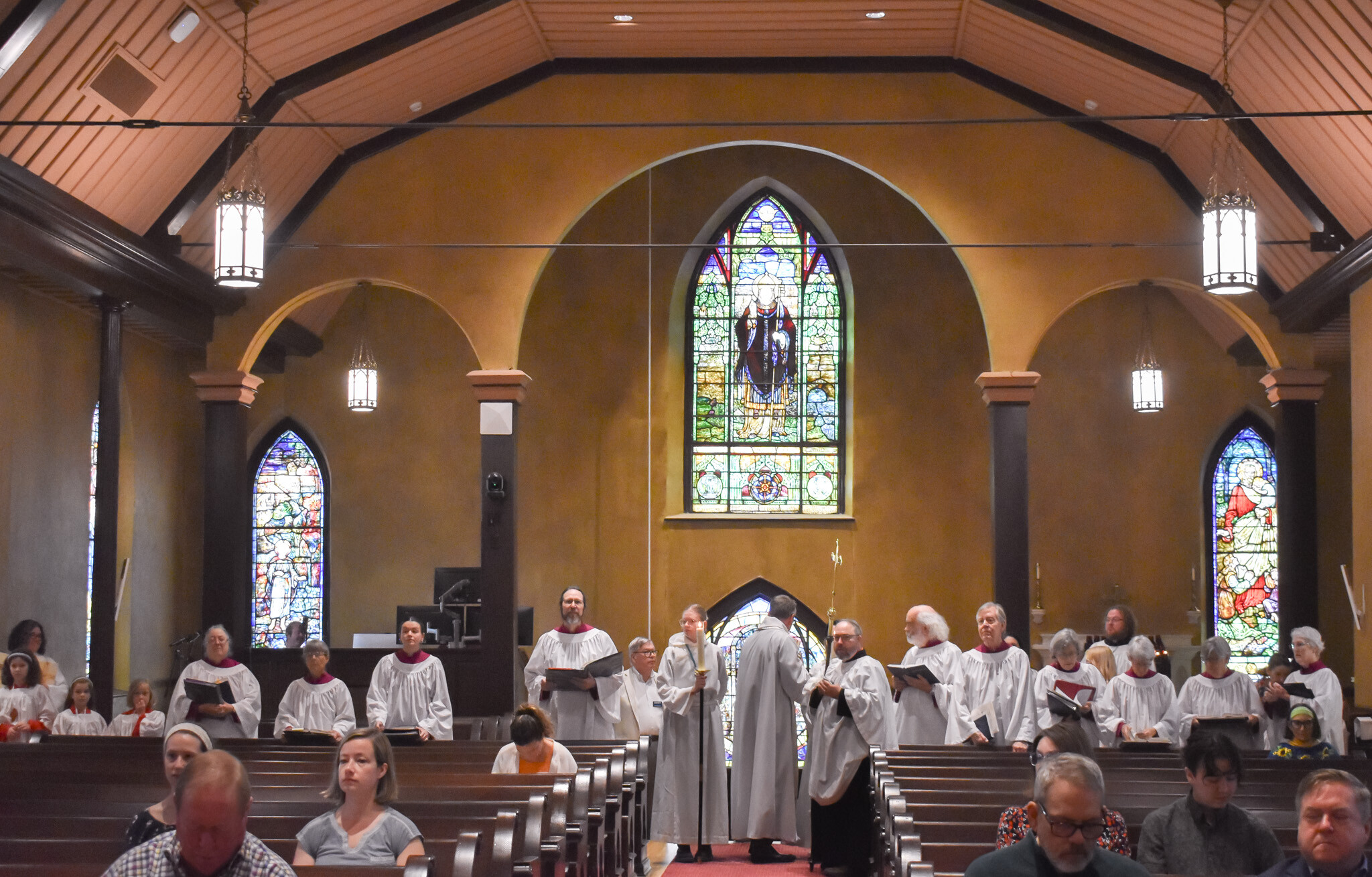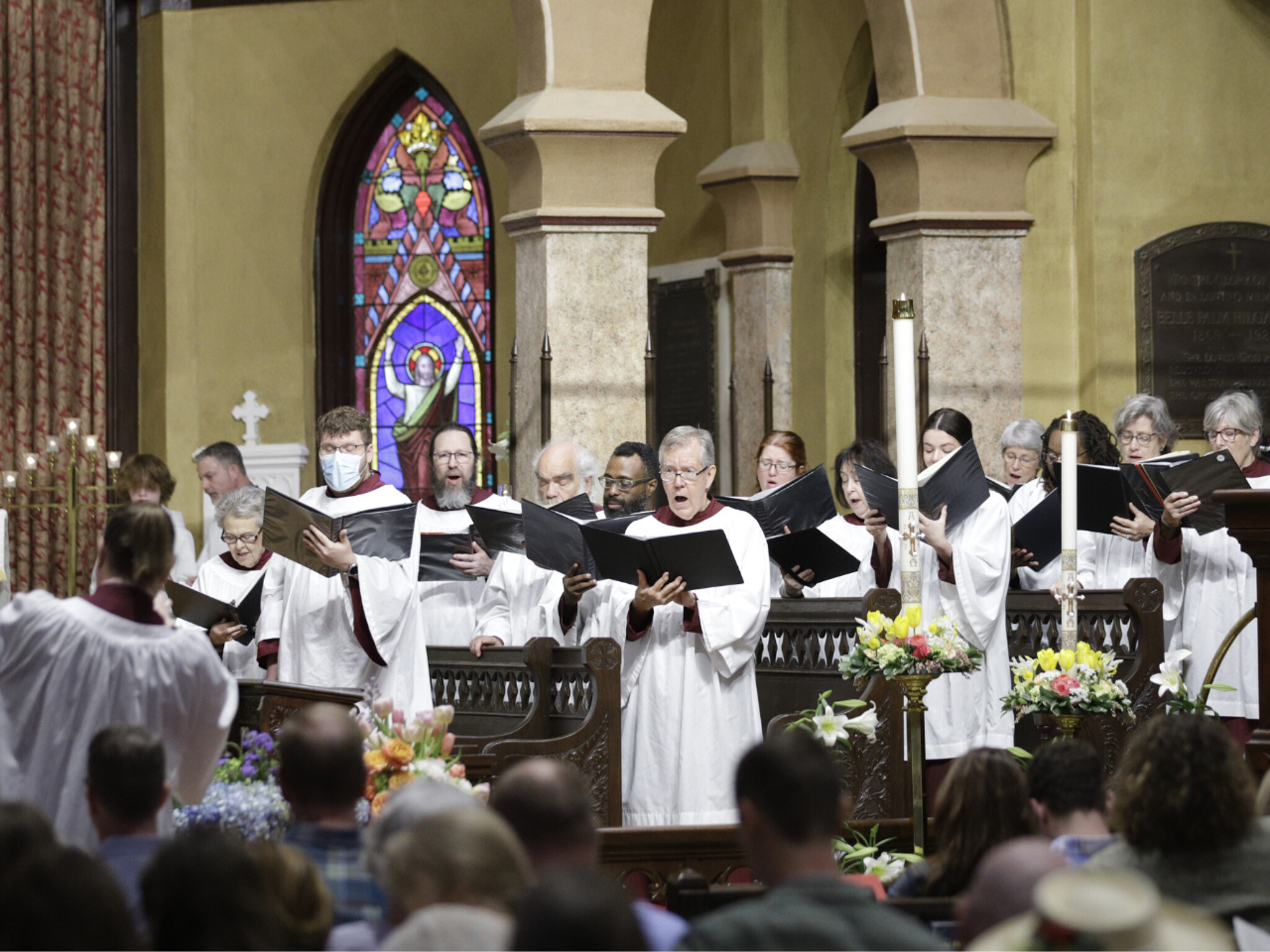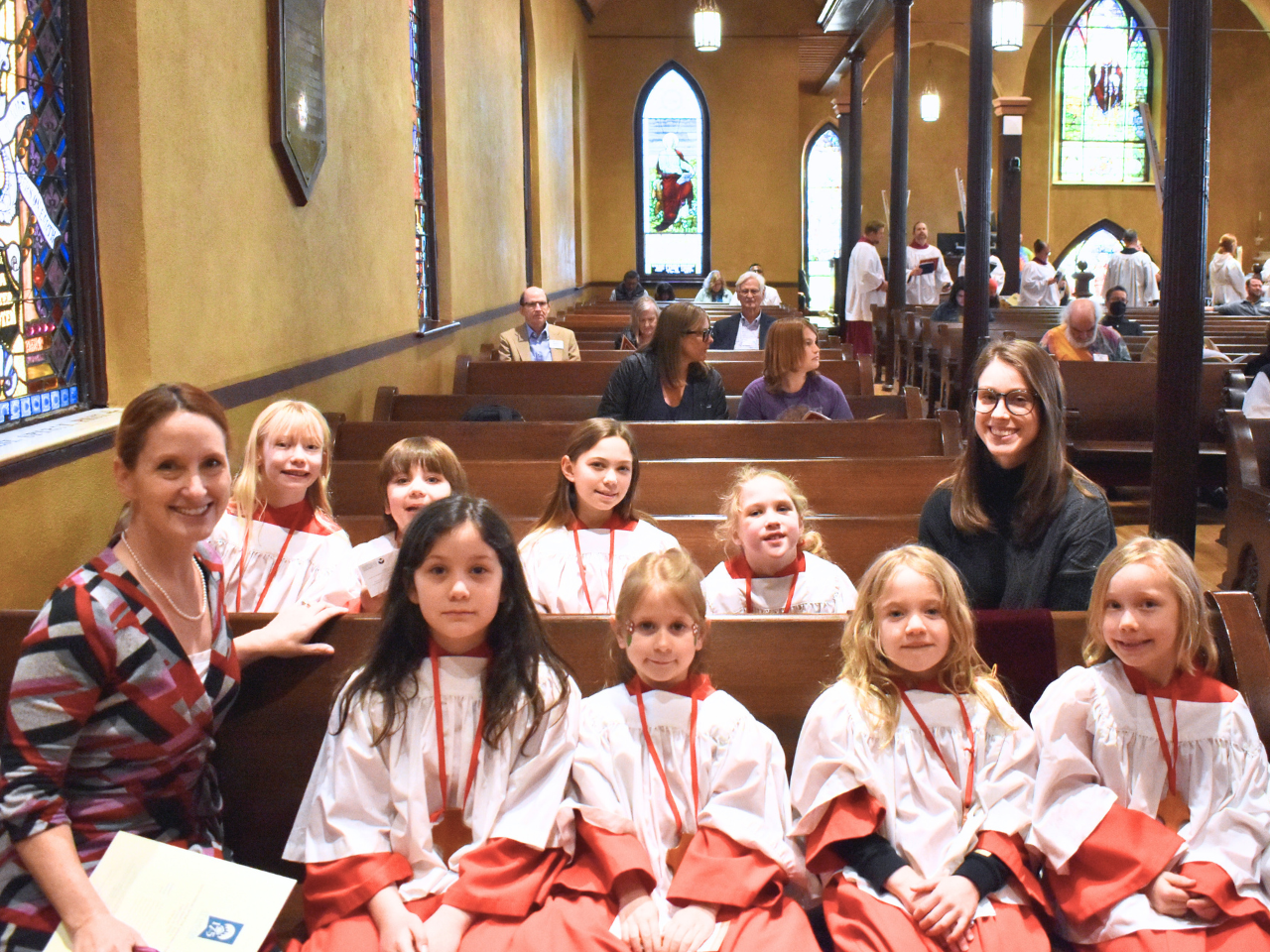
This Sunday’s non-Gospel readings give us glimpses of the unfolding divine word and purposes, both in the nascent Church and at the end of all things.
In Chapter 16 of the Acts of the Apostles, Paul is called in a vision to travel to Macedonia, moving for the first time beyond the eastern Mediterranean world into what is now considered European territory, and indeed to a Roman colony of some status. Lydia, a businesswoman and head of her household – apparently a ‘God-fearing’ Gentile who was attending a Jewish prayer meeting by the local river – is convicted by Paul’s preaching, and her entire household is baptized, as was the custom in that culture. Psalm 67, which is paired with this reading, prays for and celebrates this expanding reach of God’s salvation:
Let your ways be known upon earth;
your saving health among all nations.
Let the peoples praise you, O God;
let all the peoples praise you.
Two paraphrases of this Psalm – like the original, notable for their brevity – are sung this week. Hymn 538, ‘God of mercy, God of grace’, comes from the 1834 collection The Spirit of the Psalms by Henry Francis Lyte (from which ‘Praise, my soul, the King of heaven’ [410, based on Psalm 103] also comes). Lyte, a Scottish Anglican clergyman, is better known as the author of ‘Abide with me’ [662]. Both the text and the refreshing neoclassical music of the hymn-anthem ‘God be merciful’ were written by Daniel Moe, a prominent American choral conductor of the second half of the twentieth century.
Another vision forms the substance of our other reading (from Revelation 21 and 22): that of ‘Jerusalem coming down out of heaven from God’. This holy city, illuminated by the glory of God and the Lamb, gives light by which ‘the nations’ walk – the very ‘light of [God’s] countenance’ and the divine advent for which the Psalmist prays. The gates of this city are never shut, because it is never night and there is nothing to threaten it, all guile and vice having been purged away by the equitable and righteous judgement which Psalms like 67 and 98 remind us are part of God’s loving purposes. The traffic through these gates flows in only one direction: in.
A river also features prominently in this reading: within this blessed city, the writer tells us, is the ‘river of the water of life’, spanned by the magnificent tree of life whose leaves are good for healing. Not only are the nations to be healed thereby, we are told; as the concomitant of Ezekiel’s similar vision (Chapter 47) makes clear, they are to be given a share in the land and inheritance of God’s holy family. The thematically dense Hymn 633, ‘Word of God, come down on earth’, touches on several aspects of this reading: Christ’s enthronement on high; his ongoing work of salvation and restoration; healing and the spread of the Good News. (Themes from our current series of Gospels, from John 14–17, also appear: the unity of the Father and the Son; the coming of the Spirit.)
The river itself, ‘bright as crystal, flowing from the throne of God and of the Lamb’, forms the central image of our Communion anthem, a transcendently beautiful setting of ‘Shall we gather at the river’ by leading twentieth-century American composer Aaron Copland (originally a vocal solo, later arranged for choir). A slow tempo, unresolved harmonies, and wide and sometimes sudden changes of volume are among the musical tools deployed to establish the glowing and mysterious mood of this fine piece.




Login To Leave Comment